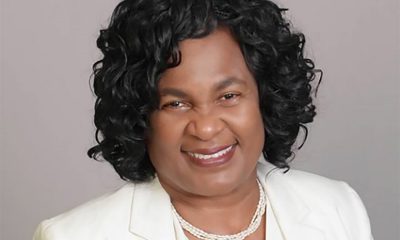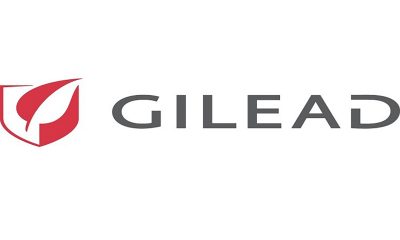Health
Learning the hard way
Local out black poz men band together to spread testing message
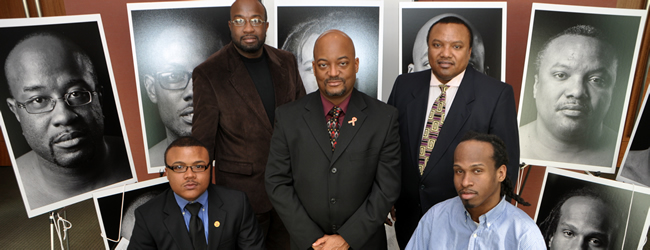

Seated from left are Venton Jones and Tori Smith. In back from left are Paul Gordon, Rodney McCoy Jr. and Samuel Hairston. (Blade photo by Michael Key)
The statistics are grim. The task is daunting.
In the D.C. area, of the estimated 16,500 people living with HIV/AIDS, 40 percent — or more than 6,700 people — who were infected with the virus were men having sex with men. The majority of these men — 60 percent, or nearly 4,100 — are black. Data, from 2010 suggests that of those, 40 percent were unaware of their HIV status before being tested.
Those scary statistics are constantly on the mind of Venton Jones, 27, who recently came to the nation’s capital from Texas where he was born and educated, earning a degree in community health and a master’s in health care administration.
But Jones’ real credentials about AIDS are different, giving him the “street cred” about HIV, credibility he wishes he never earned. In June 2007, Jones was diagnosed as HIV positive when he was going through a standard set of medical tests as he was seeking enlistment in the U.S. Army.
“It happened with someone I was sleeping with” that spring, says Jones, “at a time in my youth when I was wild, to say the least.”
He thought, “How could this happen to me?” He reviewed all he had going in his life: “I am educated; I have a degree in health; I should have known better.”
But Jones says, “there was a lot going on” in his life then, adding that he was dealing with “issues like coming out, and also what to do next” with his life, with what he calls “finding a purpose.” He says he “wasn’t necessarily on the ‘down-low,'” a term often used among black men to describe themselves as living life on the surface as “straight” but actually secretly having sex with men. He says a few of his friends already knew he was gay.
“If you asked me, I would tell you, but not too many people asked.”
In the spring of 2007 he came out to his parents.
Jones says he had regularly been tested and had always seen the results come back as negative for the virus. So he got cocky about it, basically feeling so-far-so-good. So he had unprotected sex. Now he knows better.
As a result, filling the giant vacuum of the “absence of strategies to reach young people, specially young black gay men, like the people I grew up with,” Jones says is his top priority today, as he gets ready to hit the streets to spread the message that testing for HIV is a crucial step to checkmate the renewed AIDS epidemic in the D.C. area.
On antiretroviral medication today, the virus in his body is, Jones says, “now undetectable,” and he says proudly that “now I am in the best physical and mental health I have been in my entire life.” But of course he knows the virus still lurks, waiting to pounce and begin to spread again, high-jacking other cells, especially white blood cells, eventually dooming his body’s immune system, if given the chance.
However Jones is doing more than fight HIV in his own body. He is now one of eight gay black men, all diagnosed as HIV positive, who are “HIV testing advocates” now finishing training under the auspices of the Bayard Rustin Mobilization Project, an outreach program aimed at raising HIV awareness among gay black males in D.C., funded by a grant from the federal government and directed by the national nonprofit advocacy group, the National Association of People With AIDS (NAPWA), in partnership with local groups like The D.C. Center for the LGBT Community.
Jones, who also works as a senior program associate in communications for the D.C.-based National Black Gay Men’s Advocacy Coalition, will tackle the role of being an advocate on his own time, away from his day job. And for that task, he says, “a big focus has been on reaching youth.
Jones has a lot in common with his fellow advocates. Like Samuel Hairston, a 44-year-old preacher with a passion for spreading the “good news,” ordained in 1996 as a full-time Pentecostal minister, currently living in D.C. but pastoring on weekends in Baltimore at the Church of the Everlasting Kingdom, with a congregation of about 50, he says, most of whom are not LGBT, and who all know that he is both gay and HIV positive.
Then a full-time Montgomery County firefighter, in 2005 Hairston learned he was positive when, he says, after years living life on the “down-low,” a “routine medical exam in his blood work prompted an HIV test, and I came up positive.”
He was “devastated,” he admits, not only for himself, but also because he had to go home and tell his “faithful and loving” wife that he had contracted HIV “and that I could possibly have infected her.” He says that “thankfully, that was not the case,” and she remains negative today. “The marriage was already on the rocks,” he says, and it did not survive. His children, then a 9-year-old son and a 6-year-old daughter, took their parents’ divorce hard, though they survived it, and they did not learn until later that their father was infected.
“As I child,” he says, “I always felt an attraction to men and other boys, but there was no one I could trust to talk to.” His introduction to sex came when he was molested at age 5. He learned “at an early age,” he confides, “to keep secrets and hide my feelings.”
Later he convinced himself that through his early ordination in the ministry, at first when he was 14, he “would change my homosexuality,” but by age 15, he says he was “jumping in and out of cars and finding ways to feed my sexual appetite,” which felt “insatiable” to him. He calls himself a recovering sex addict. And though he preached a Christian message, he says, “I never believed (God) really loved me because I was gay.”
As the marriage was cracking apart and with the diagnosis of AIDS, his world was falling in on him. “I went into a spiral of serious depression” and he says he wound up meeting a man, “the first man to give me some attention” of the type he sought. They had sex and did cocaine.
“Drugs became my outlet,” Hairston says, as he sought “some release from the guilt and shame of living in the closet and the ‘down-low’ lifestyle, and the pain it caused my family.”
“Today I live life out in the open,” he says. “I’ve left the ‘down-low’ behind, because it’s so dishonest. The truth is liberating, and even as Jesus said, ‘The truth shall set you free.'” Today, Hairston says, thanks to regular devotion to a 12-step program, he’s “clean” of drugs and “celebrating two-and-a-half years of sobriety.”
One of his biggest life missions now “is to reach out to African-American men, who are on the down low, and to say that there’s a better life, to help them to embrace honesty,” the same transparency he has come to himself. As for himself, he says he has “reconciled” his sexuality with his spirituality. His target audience will be among those attending the black church, which traditionally has fostered homophobia rather than acceptance.
Meanwhile, another advocate, Tyranny “Tori” Smith, 30, will focus his outreach efforts differently — to those who inhabit what he calls the “vogue-fem” subculture: gay and transgender men and women who stylize their lives with makeup, hairdos, costumes and dancing. This is the “sweet” world of “ballroom” culture, and the “houses of families formed by choice, not birth that grow up within the world of urban, predominantly black “ballroom,” or fashion runway, competitions.
Raised in Oxon Hill, Md., Smith came out at age 14 and soon was a regular at the clubs like Tracks.
“I told my mother,” he says, that he was gay, “and once I told her, there was no one else to hide it from.” Now a resident of NE D.C., Smith is a member of the “House of Herrera,” named for famed Venezuelan-born American fashion designer Carolina Herrera. It’s his second “house.” He joined his first when 16 but five years ago switched to Herrera, which currently has about six members in D.C. and around 300 nationwide, five years ago. “In my house,” he says, “they’re my family.”
Smith discovered he was positive in June 2010, when he came down with summer pneumonia and was tested positive when given an HIV exam.
“I was surprised,” he says, “because I had been with someone for three years, and we had both tested negative at the beginning.” But with the benefit of hindsight, it was his partner (who later died, though not of AIDS) who infected him.
Now as an advocate for regular testing, Smith says that “my whole purpose is to reach people, like in the ‘ballroom’ culture, that the Health Department is not reaching — that’s my audience. Basically, we’re trying to put a face to HIV, our face, that’s our whole mission. And when I talk to people, my motto is this: ‘knowing is to live, not knowing is to die.’ So basically I tell them, ‘get tested.'”
Two other Rustin Mobilization Project testing advocates are Paul Gordon, 40, born in Portsmouth, Va., and Rodney McCoy, Jr., 43, born in Brooklyn, N.Y. Both men now live in the D.C. area.
Gordon, who felt he was gay from age 5 on, was molested at age 14, raped at gunpoint and “with a knife at my neck” by someone he calls his father’s “best friend.” The assailant was eventually arrested and convicted and served eight years of a 20 year prison sentence. Gordon, who then began to have sex with boys his own age, came out when he was about 18. His HIV status was diagnosed positive in 1989, contracted from a partner, a decade older, with whom he moved to Atlanta at age 20 after graduating from Hampton University in coastal Virginia. Gordon never knew his partner, who eventually died after their three-eyar relationship, was positive
“I was just trusting,” he says.
When he learned he was infected, Gordon remembers that “I went to a place of denial. Regardless of what the doctor said, I didn’t believe it.”
McCoy, in the field of HIV prevention for 16 years and now an outreach advocate as well as a manager of the Mobilization Project program, was diagnosed HIV positive in 2002, when he was so weak with the flu that someone urged him to get tested.
“I really didn’t expect to be positive,” he says. “I had risky behaviors before but I had always tested negative. I felt I was just managing my risks well enough.” When dating one person, for only a month, the man insisted he was negative, and looking back, McCoy says, “To this day, I’m sure now that he didn’t tell me the truth.”
For McCoy, it comes down to this: “We often say ‘use condoms every time,’ but often we simply don’t acknowledge that love, trust and pleasure trump knowledge and information every time. And you can say this, I found out the hard way.”
“Self-determination” is the watchword of the Bayard Rustin project and its sponsoring organization, NAPWA, whose president Frank Oldham, Jr. says that “While the epidemic impacts us directly, we also impact the epidemic by identifying ways to reduce its new infections, mitigate its stigma and alleviate its suffering.”
It was NAPWA, which advocates for 1.3 million Americans living with AIDS, that created the annual event of National HIV Testing Day.
The Rustin project is simply one more step in the proverbial journey of a thousand miles, until the disease can be cured and even prevented. In the meantime, Oldham says, “we help individuals living with HIV learn how to tell their stories. We’re taking the fight to the streets,” with advocates who are HIV positive, one man reaching out to another man, one step at a time.
Health
UNAIDS to commemorate Zero Discrimination Day’s 10th anniversary
UN agency urges global action to protect human rights
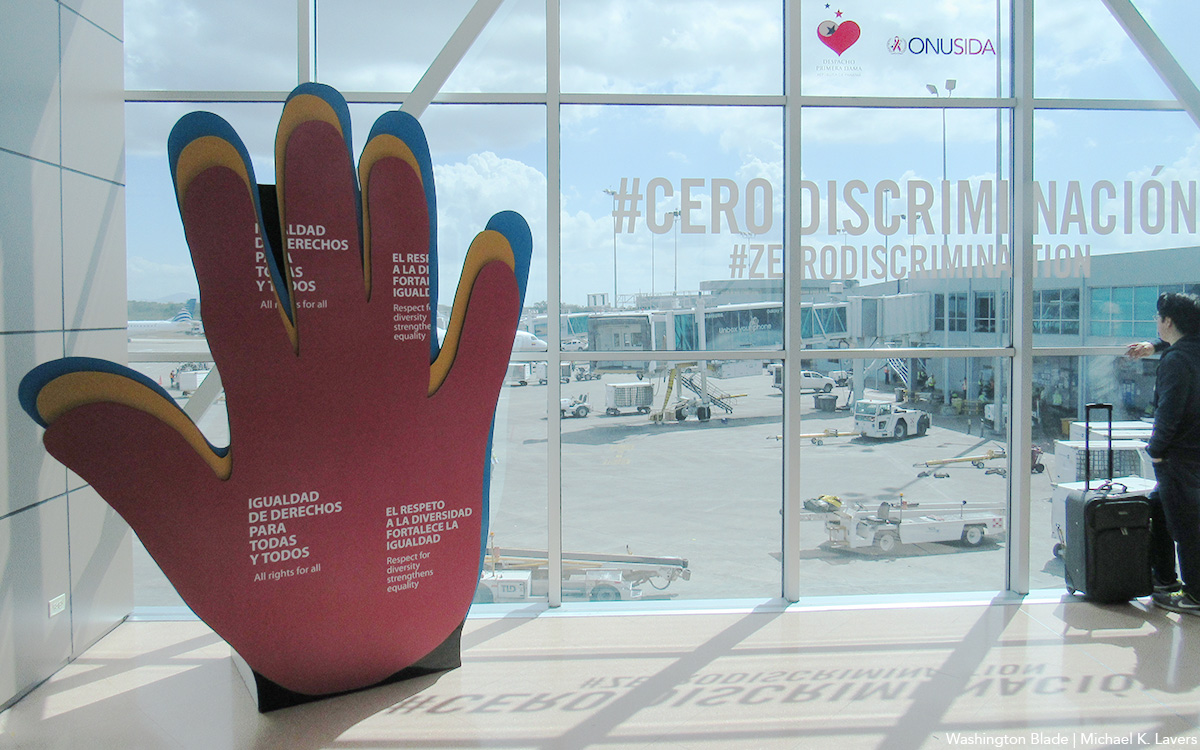
As the world marks the 10th anniversary of Zero Discrimination Day; UNAIDS is sounding the alarm on the increasing threats to human rights, calling for renewed efforts to protect the rights of all individuals as a fundamental step towards ensuring health for everyone.
Established by UNAIDS a decade ago, Zero Discrimination Day aims to promote equality and fairness regardless of gender, age, sexuality, ethnicity or HIV status. The progress achieved over the past years is now in jeopardy, however, due to rising attacks on the rights of women, LGBTQ people and other marginalized communities.
UNAIDS Executive Director Winnie Byanyima emphasized the critical link between protecting human rights and safeguarding public health.
“The attacks on rights are a threat to freedom and democracy and are harmful to health,” she said in a press release. “Stigma and discrimination obstruct HIV prevention, testing, treatment and care and hold back progress towards ending AIDS by 2030. It is only by protecting everyone’s rights that we can protect everyone’s health.”
Despite challenges, there has been notable progress.
At the onset of the AIDS pandemic more than 40 years ago, two-thirds of countries criminalized consensual same-sex sexual relations. They are now decriminalized in two-thirds of countries. An additional 38 countries around the world have pledged to end HIV-related stigma and discrimination, contributing to positive changes that include 50 million more girls attending school compared to 2015.
To sustain and enhance these advancements; UNAIDS urges global support for women’s rights movements, LGBTQ rights, racial justice, economic justice, climate justice and peace initiatives. By standing with communities advocating for their rights, the U.N. aims to reinforce the collective effort towards a more inclusive and equitable world.
Zero Discrimination Day is observed on March 1.
Events and activities that will take place around the world throughout the month will serve as reminders of the essential lesson and call to action: Protecting everyone’s health is synonymous with protecting everyone’s rights.
“Through upholding rights for all, we will be able to achieve the Sustainable Development Goals and secure a safer, fairer, kinder and happier world — for everyone,” said Byanyima.
Health
New CDC report finds transgender women at higher risk for HIV
More than 1,600 people in seven cities surveyed
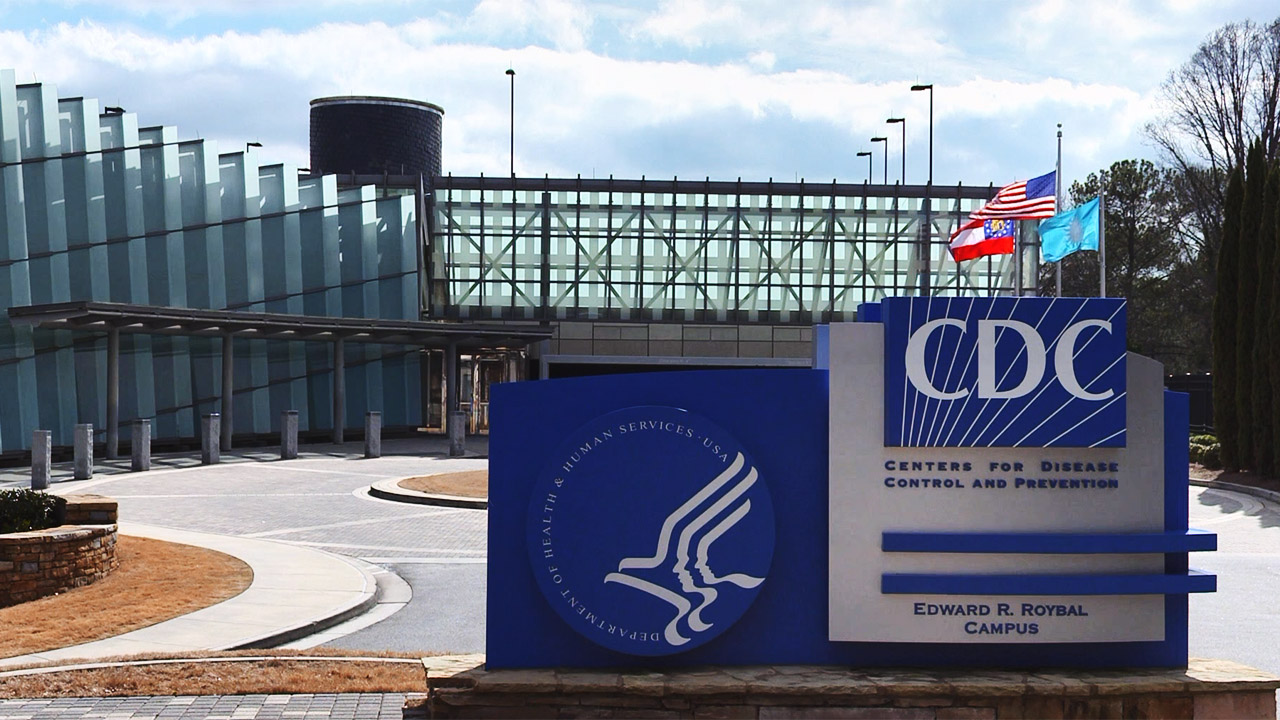
The Centers for Disease Control and Prevention issued a new study report this week that revealed that restricted by employment and housing discrimination and lack of access to needed gender-affirming healthcare for transgender women increasing the risk of contracting HIV.
Researchers reviewed data from a 2019-2020 survey, the National HIV Behavioral Surveillance Among Transgender Women, which found that the demographics of HIV/AIDS have been disproportionally high, especially among Black and Latina trans women, who had experienced employment and housing discrimination coupled with lack of access to gender-affirming healthcare.
The Jan. 25 Morbidity and Mortality Weekly Report was based on data studies of more than 1,600 trans women in seven major urban locales. Participants from Atlanta, Los Angeles, New Orleans, New York, Philadelphia, San Francisco and Seattle were chosen by referrals from people and community-based organizations who knew or were part of the local population of trans women.
The study’s researchers noted: “Employment discrimination occurs at the overlapping nexus of poverty, homelessness, incarceration, health insurance, disability, food insecurity and survival sex work. These issues are interconnected.”
The study stated that trans women’s inability to access quality healthcare, including gender-affirming treatment or access to PrEP, and can expose them to potential incarceration as many turn to “survival sex work” and violence, which increases the risk of contracting HIV.
The study’s author’s pointed out: “When economically marginalized transgender women are refused employment, this refusal cyclically contributes to economic hardships. This analysis …demonstrates the importance of transgender women working and living with dignity and without fear of unfair treatment.”
Health
A Whole New Perspective on Well-Being
The Mather’s team recognizes that everyone’s wellness journey is completely unique to their life experiences and influences.

It’s easy to spot the distinctive, elegant silhouette of The Mather, a Life Plan Community for those 62+ opening this spring in Tysons, Virginia. What is not apparent to the naked eye is The Mather’s unique wellness philosophy, which is literally built into the community.
The Mather’s team recognizes that everyone’s wellness journey is completely unique to their life experiences and influences.
Nature is one of the important factors that contribute to well-being. So The Mather is incorporating biophilic design—a design approach to facilitate access to nature or things that replicate natural patterns. This can include interior spaces with sightlines to a garden, choosing natural wood and stone as interior materials, or incorporating fragrant flowers and plants indoors to spark memories and provide tactile opportunities such as gardening.

“Providing biophilic design within interior settings connects residents to the natural world,” says Mary Leary, CEO and President of Mather, the organization behind The Mather. “Research shows that a connection to nature provides positive benefits to mental states and overall well-being. At The Mather, biophilic design is the intersection of buildings and programs with nature in an urban setting.”
“The Mather is attracting a diverse group of older adults,” says Mary. “As a result, we aim to incorporate wellness practices from around the world, including Wyda movement theory of the Celtic Druids, which helps people achieve harmony with nature and contentment through mindfulness.” This holistic regenerative approach is similar to Qi Gong and yoga, while born in a different part of the world. Mather Institute has a special focus on mindfulness to support older adults’ practice of present moment awareness, which can lead to increased overall well-being, compassion, and joy.
A very different example of a wellness offering at The Mather is the Gharieni Welnamis spa wave bed, which uses computer-controlled vibrational therapy and audio frequencies to train the brain to relax. “The bed increases mindfulness, concentration, and creativity—all of which support our mission of creating Ways to Age Well,SM” says Mary.
These and other personalized ways to wellness will ensure that residents of The Mather can choose from seemingly countless ways to focus on their well-being. In other words, the sky’s the limit!



